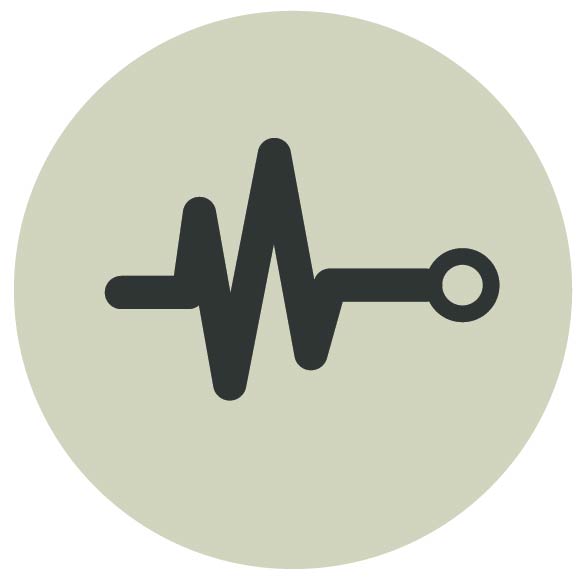Diabetes Type 2 is a lifelong metabolic condition that causes the glucose level in the blood to become too high. This happens when the insulin made by the pancreas is not enough or does not work properly.
There is currently no cure for diabetes type but modifications to lifestyle can help with managing the condition. Sometimes, if diet and exercise are not enough to manage blood sugar, diabetes medications or insulin therapy may be needed to control the condition.
The content on this page is provided solely for information purposes and provides an overview of the subject matter covered. It is not a substitute for professional medical advice, diagnosis or treatment. If you think you have diabetes type 2, please seek further information. The information on this page is subject to change without notice.
Diabetes Type 2 is an invisible disability
 More than 1 in every 10 adults have diabetes type 2
More than 1 in every 10 adults have diabetes type 2 462 million individuals are estimated to be affected by diabetes type 2
462 million individuals are estimated to be affected by diabetes type 2 No cure There is currently no cure for type 2 diabetes
No cure There is currently no cure for type 2 diabetes 90-95% of people with diabetes have diabetes type 2
90-95% of people with diabetes have diabetes type 2
Symptoms
Diabetes type 2 has a slow onset and many people do not show symptoms immediately. Some people may notice the following symptoms:
- Urinating a lot, particularly at night
- Feeling more thirsty than usual
- Itching and thrush around genital area
- Wounds and cuts takes longer to heal
- Blurred vision
- Weight loss
- Feeling tired and weak all the time
- Dry mouth
- Headache
Living with Diabetes Type 2
Diabetes type 2 can be challenging for those living with the condition as it requires daily self-management and ongoing health check-ups. Sometimes people with diabetes type 2 may feel overwhelmed as they need to check their blood sugar levels often, stay physically active, make healthy food choices, keep up with time to take medication, and make other good decisions about their health several times a day. The following are some of the effects that people with diabetes type 2 may face:
- Mental health problems such as anxiety and depression
- Diabetes distress from looking after themselves everyday
- Fear of developing diabetes complications such as kidney and heart conditions.
- Losing interest in hobbies and favourite activities
- Eating disorders - overeating or not wanting to eat at all
- Discrimination at work, school, and outside home
- Concerns with finances due to cost of managing the condition
Assistance and support you can offer
Diabetes type 2 like other non-visible disabilities is different for everyone, and it is impossible to generalise the below recommendations for all.
Someone with diabetes type 2 may never need your practical help unless they have a diabetic emergency. The support someone with diabetes type 2 needs can change from time to time. This depends on some factors including your relationship or responsibility you have for them, kind of person they are, length of time they have had the condition for. Here are some ways you can offer support:
- Find out about type 2 diabetes and how it differs from diabetes type 1
- Offer emotional support
- Be open to the kind of help the person with the condition may need and do not judge
- Do not question what they eat or drink or comment on their weight
- Do not pressure them into eating or drinking anything if they have already said no
Information on workplace considerations are only available to some Sunflower Members. Find out more about the Sunflower Membership plans here.
Sources:
Diabetes.Org.UK: https://www.diabetes.org.uk/guide-to-diabetes/life-with-diabetes/employment/employers
Diabetes.Org.UK: https://www.diabetes.org.uk/diabetes-the-basics/types-of-diabetes/type-2
Endocrine Web: https://www.endocrineweb.com/conditions/type-2-diabetes#
National Library of Medicine: https://www.ncbi.nlm.nih.gov/pmc/articles/PMC7310804/
Mayo Clinic: https://www.mayoclinic.org/diseases-conditions/type-2-diabetes/symptoms-causes/syc-20351193
NHS UK: https://www.nhs.uk/conditions/type-2-diabetes/
Optimal Health: https://www.optimahealth.co.uk/seven-ways-employers-can-support-people-in-the-workplace-with-diabetes/
Look out for these Sunflower icons
 I may need urgent access to the closest toilet facility
I may need urgent access to the closest toilet facility I may need a place to sit down and rest
I may need a place to sit down and rest I have a hidden disability
I have a hidden disability
The content on this page is provided solely for information purposes and provides an overview of the subject matter covered. It is not a substitute for professional medical advice, diagnosis or treatment. If you think you have diabetes type 2, please seek further information. The information on this page is subject to change without notice.





